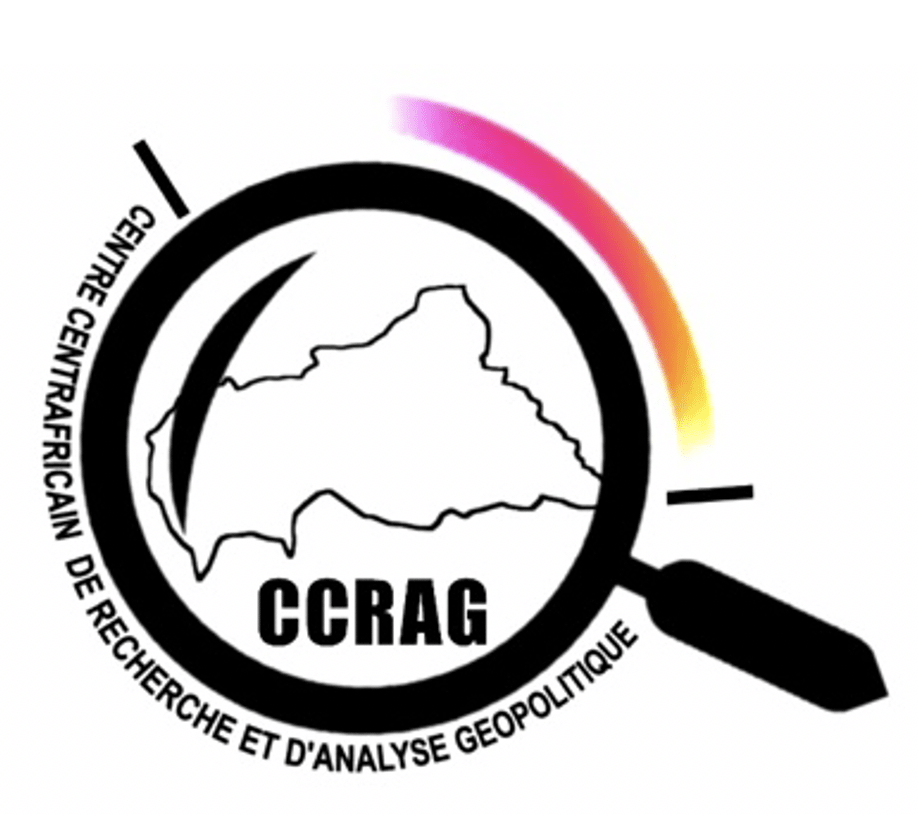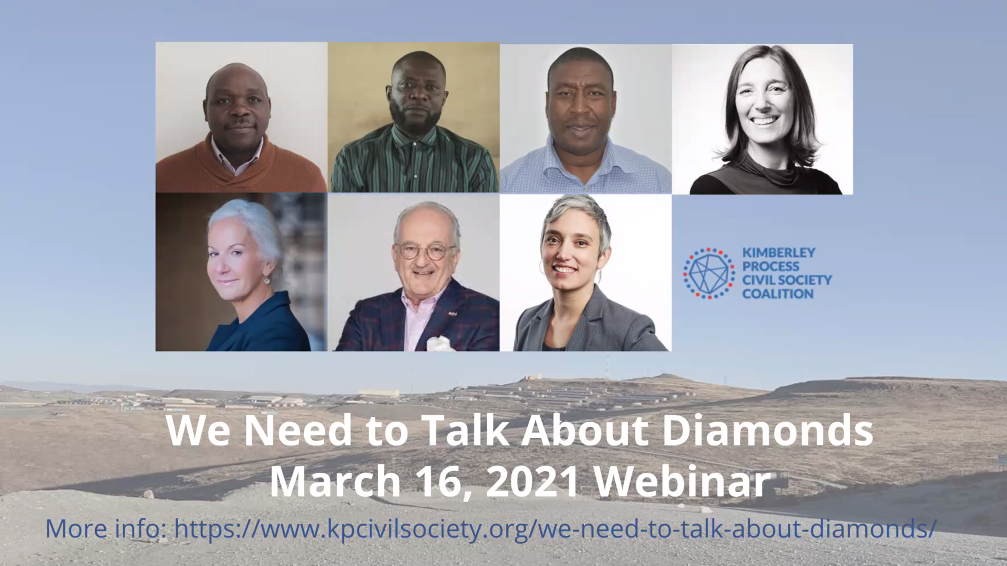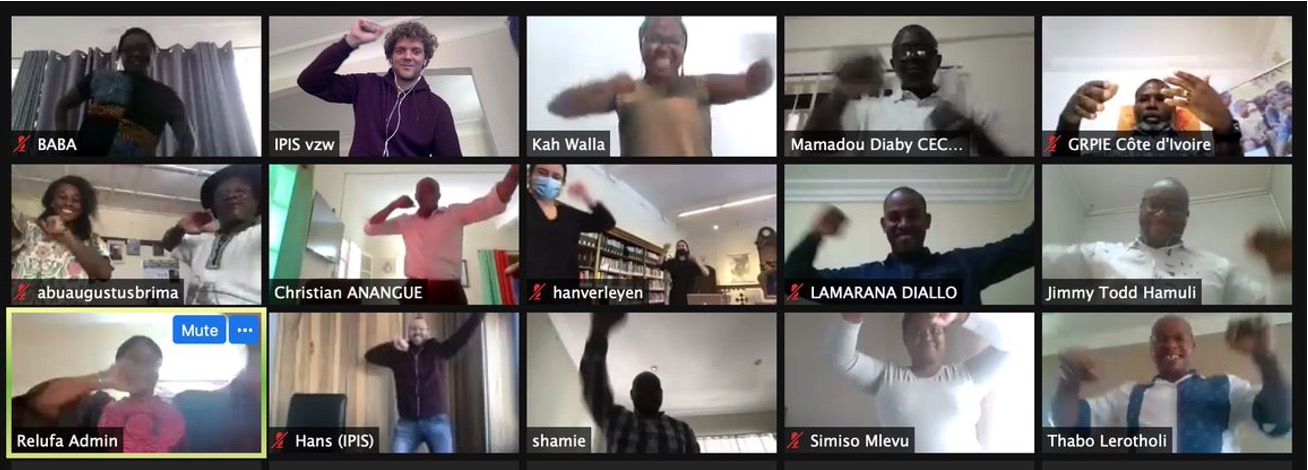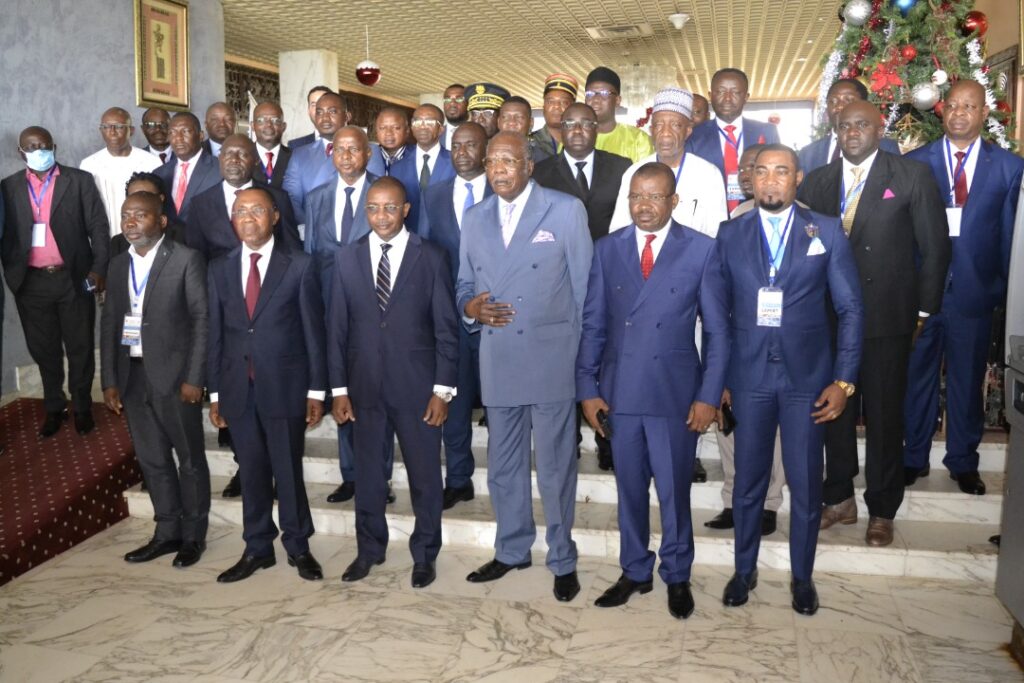2021 was despite COVID-19-related restrictions again a very busy year for the Kimberley Process Civil Society Coalition (KP CSC). Listing all activities undertaken by our 13 member organisations working in 10 different countries would lead us too far. Therefore, we have selected some key highlights for you.

First of all, we welcomed a new member to our Coalition from a country that is of key importance to the diamond sector, namely the Centre Centrafricain de Recherche et d’Analyse Géopolitique (CCRAG) from the Central African Republic. CCRAG undertakes research and advocacy focused on geopolitics and extractive industries.
In addition, we are happy to introduce two new associate members that enter an engagement with the KP CSC to get to know each other’s work and activities better. These are Women in Mining and Extractives (WOME), a women’s rights organisation from Sierra Leone, and Botswana Watch, an NGO promoting transparency and accountability in Botswana’s extractive sector.

We launched our We Need To Talk About Diamonds campaign with the publication of a video early 2021 that surfaced lived realities of communities affected by ongoing human rights abuses, violence and conflict linked to diamond mining. To help bridge the daunting gap between mine and market we organised a first campaign webinar in March where affected communities and African civil society organisations could engage directly with key industry leaders.
The Kimberley Process Certification Scheme (KPCS), that is often presented as preventing violence and conflict, in fact often greenwashes such situations and efforts to address this major weakness fail time and again. Therefore, we engaged throughout the year with NGOs, companies and industry associations to explore solutions outside the restricting scope of the KPCS. This resulted in our call for industry action that we presented during a second well-attended webinar in October.
We moreover participated in various other webinars including a Living Room Session on Diamonds by Christina T. Miller Consulting, the opening session of the OECD Responsible Minerals Forum, a session on recent developments related to diamonds, human rights and the Kimberley Process hosted by the Japanese NGO Diamonds for Peace, the Antwerp Summer University ‘From Mine to Finger’, and the Chicago Responsible Jewelry Conference.
As Covid-19 prevented us from meeting in person we kept in touch virtually through a series of online meetings, including a planning meeting in February, training sessions to prepare for mobile data collection surveys on diamond mines in May, preparatory meetings for the virtual KP Intersessional and Plenary meetings in June and November, and numerous online sessions of our regional groups and Steering Committee.

In October, our Zimbabwean members ZELA and CNRG organised a meeting in Maputowith civil society from Mozambique to prepare them for the country’s accession to the KPCS that was formally approved by the November KP Plenary. The meeting served to raise awareness and discuss the challenges and opportunities related to the implementation of KPCS requirements in Mozambique.
Throughout the year, the KP CSC participated in various consultations by the European Parliament in preparation ofa Resolution on the Kimberley Process. The final Resolution, that was adopted in December by a sweeping majority in the European Parliament, is a victory for the KP CSC as it echoes many of our long-standing demands. This includes the expansion of the KPCS’ scope with human rights and environmental issues, stronger controls and oversight on KPCS’ requirements, as well more support and respect for the important role of civil society in this process. The European Parliament moreover called on the European Commission to explore autonomous EU measures to overcome the shortcomings and gaps in the KPCS.

From 20-22 December the KP CSC actively participated in a KP Regional Cooperation Workshop in Yaounde, Cameroon. The workshop dealt specifically with avenues of action for law enforcement to stem the illicit diamond flow in Central Africa by enhancing cooperation between the Central African Republic, Cameroon, the Democratic Republic of Congo, the Republic of Congo, Gabon and Angola. KP CSC members delivered an opening address and an overview of research on illicit diamond flows in Central Africa, lessons learned from the KP regional approach in the Mano River Union and independent KP monitoring in Cameroon.
In addition to our coordinated efforts in mapping the socio-economic and human rights impact of mining in 8 African countries, the members of our Coalition completed numerous activities on the national and regional level. This includes the independent monitoring of KP controls in Eastern Cameroon by RELUFA and the assessment of Belgium’s diamond sector controls by IPIS.

